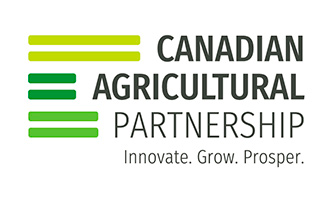Key Result
In general, seeding rates of 120 and 180 seeds per square metre, which achieve 56 and 80 plants per square metre (five to eight plants per square foot), respectively, provided higher and more stable canola yield relative to the seeding rate of 60 seeds per square metre.
Project Summary

A low seeding rate may save on seed costs, but will result in lower overall yields and greater yield variability.
This study explored the interactions between seeding rate, harvest method and timing, and cultivar maturity. Dr. Beres’ research team wanted to see how crop density, harvest management system and cultivar influenced harvest timing recommendations.
Objectives
- Understand how manipulations to seeding density, hybrid maturity rating and swath/straight-cut timing alter crop yield and quality.
- Refine best practices in relation to the determination of optimal swath/straight-cut timing as plant density changes and as subsequent changes to canopy architecture, whole plant moisture, seed colour and moisture changes occur
- Determine how the integration of seeding density, cultivar selection and harvest management system influence canola canopy architecture (pods and branches per plant and per unit area, for example).
- Provide an economic analysis for low versus high seeding density systems, and straight-cut versus swathing scenarios.
Methods
Seeding rates were 60, 120 and 180 seeds per metre square (approximately 6, 12 and 18 seeds per square foot). Harvest methods were swathing at 60 per cent seed colour change, swathing at 90 per cent seed colour change, straight cutting at 10 per cent seed moisture and straight cutting at five per cent seed moisture. Cultivars were late-maturing L255PC and early-maturing L233P. Both had pod shatter resistance.
Trial sites were Lethbridge and Lacombe in Alberta, Indian Head in Saskatchewan and Brandon in Manitoba over four growing seasons – 2018, 2019, 2021 and 2022.
Results
In general, seeding rates of 120 and 180 seeds per square metre, which achieve 56 and 80 plants per square metre (five to eight plants per square foot), respectively, provided higher and more stable canola yield relative to the seeding rate of 60 seeds per square metre.
A higher seeding rate was needed at site-years that experienced moderate to severe abiotic stress, while the lowest seeding rate maintained high yields when that stress was absent.
Critical yield components for canola are seed weight on the primary branches, overall plant density, and pod count on secondary branches. This would explain why the lowest seeding rate could still provide superior yields at some site-years as it caused positive compensatory responses in canopy architecture, especially pods on secondary branches. However, the lowest seeding rate also produced the fewest plants (35 plants per square metre), which would explain the highly variable nature of yield and yield stability.

The late-maturing canola hybrid (L255PC) seeded at 120 and 180 seed per square meter and managed with straight-cutting displayed a higher and more stable yield relative to other treatment combinations. (See the top left quandrant in Figure 1).
The seeding rate of 180 seeds per square metre coupled with straight-cutting also provided higher than average seed yield and yield stability for the early-maturing hybrid (L233P).
Straight-cutting at 10 per cent seed moisture is superior for grain yield. If timing is delayed to five per cent seed moisture, straight-cutting yielded the same as swathing at 90 per cent seed colour change.
Both swathing treatments produced similar yields, which was likely facilitated by the use of pod shatter reduction trait hybrids.
Combining operations led to an average of 10 per cent higher seed losses with straight-cutting than with swathing. However, total seed loss with swathing was 13 per cent greater than straight-cutting because swathing has more opportunity for loss before the combining operation. Our results support Haile et al. (2014) who reported that the elimination of swathing and switching to straight-cutting did not result in a seed loss increase.









